The First Things to Do When You Start Seeing Wrinkles
At some point, we all begin to develop little creases in our skin. Here's what the experts say to do next to strengthen your complexion and keep it firm for the years ahead.
By Kari Molvar

Photo: Peopleimages/Getty Images
Know the Facts First
It might surprise you to know that levels of collagen—the protein that keeps skin firm—start to dwindle as early as your teens, says New York City dermatologist Patricia Wexler, MD. Yet most women start to notice fine lines and slackness of skin around age 25. "Genetics has a lot to do with the way we age," Wexler says, "but certainly how we take care of the skin plays a predominant role in how we can change that."
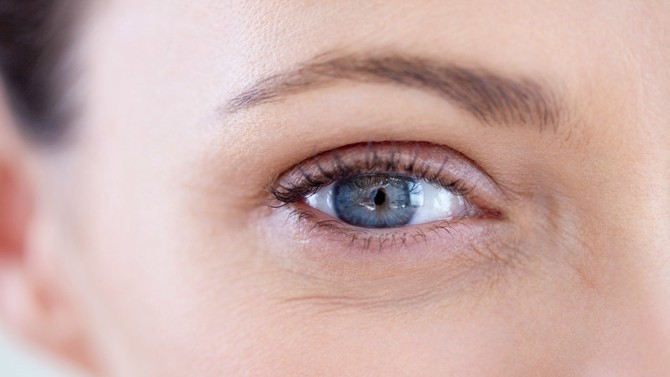
Photo: Cecile Lavabre/Getty Images
Focus on Where Wrinkles Strike
"Baby" wrinkles—or those tiny creases and early indentations—usually appear in areas where the skin moves repeatedly (and weakens over time) with expressions, most noticeably on "the forehead, eyes and mouth," says New York City dermatologist Dendy Engelman, MD. But around the eyes is especially vulnerable, she says, since the skin is about 40 percent thinner there compared to the rest of your body and can droop at a faster rate.
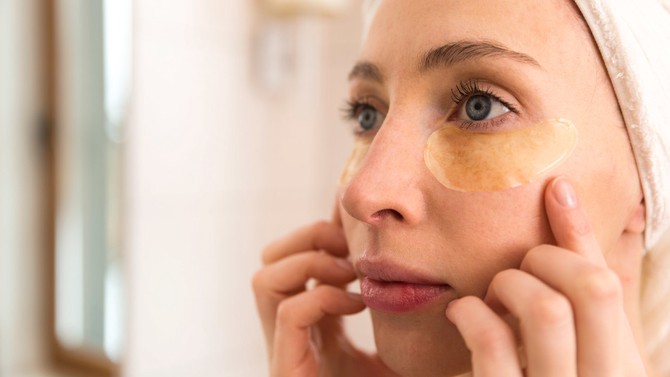
Photo: artursfoto/iStock
Take a Targeted Approach
For your eyes, Wexler recommends using a nightly eye cream with retinol, a skin-strengthening ingredient that's the "gold standard for collagen stimulation and repair." Dallas-based facialist Joanna Czech, meanwhile, relies on an at-home micro-needling device, such as Environ's Cosmetic Focus-CIT, which has slim needles designed to carefully puncture the skin—sounds like torture but it creates a wound-healing response that firms the surface over time (start by pressing the tool around your eyes and the rest of your face for three to five minutes, one to two times a week).
Needles not your thing? Czech is also a fan of 111Skin's Meso Infusion Overnight Micro Mask, contoured patches that fit around your eyes, forehead and sides of the nose, and have little bristles that gently prick the skin to help the mask's revitalizing ingredients (vitamin C, hyaluronic acid) sink in deeply.
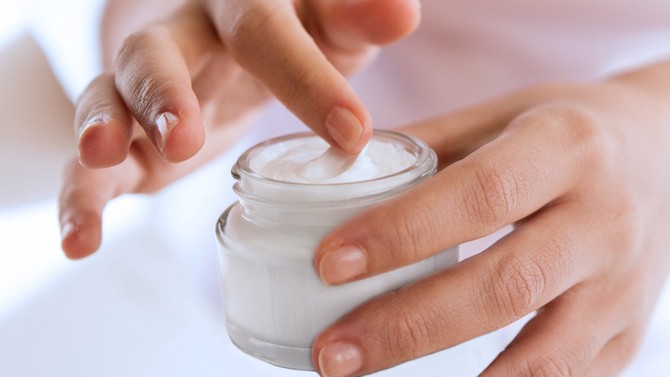
Photo: Praiwan Wasanruk/iStock
Upgrade Your Day and Night Creams
Opt for a day cream with vitamin C—an anti-aging superhero ingredient that fends off daily damage from wrinkle-accelerating free radicals—and a broad-spectrum SPF level 30 or higher (or apply sunscreen separately). Wexler swears by EltaMD UV Clear Broad-Spectrum SPF 46, which has a completely transparent finish. At night, go for a thicker, more emollient cream, since your skin naturally loses moisture while you sleep (dryness accentuates a crepey effect), plus a retinol-and-peptide serum to "help soften the look of fine lines" and give "a smoother, firmer look to the skin," Wexler says.
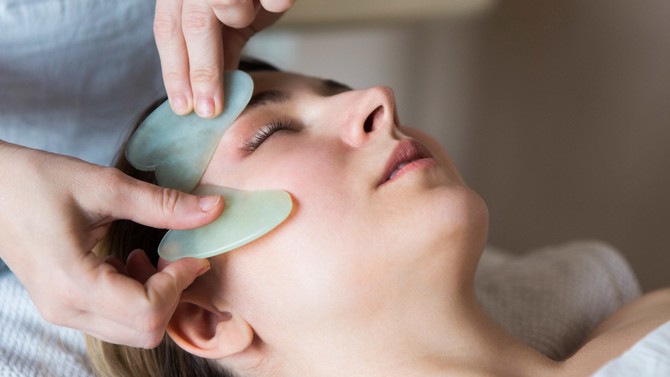
Photo: petrenkod/iStock
Give Your Skin a Workout
To keep your face taut and strong, experts say you need to strengthen and tone it just like any other part of your body. Engelman, for her part, is partial to facial gua sha, a massage that involves gliding a flat stone along the jaw, cheeks and forehead to stimulate circulation and manually lift and sculpt muscles (you can book a treatment or do it at home—Engelman uses videos from Lanshin spa).
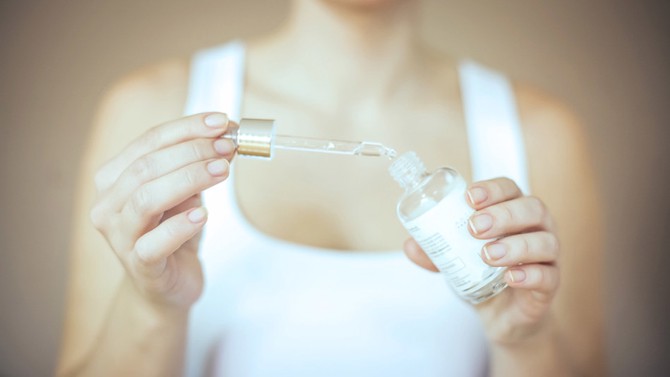
Photo: Mladen Zivkovic/iStock
Smooth Lines
For a long-term fix, a serum with hyaluronic acid is your secret weapon, Czech says. The ingredient acts as a natural humectant to pull moisture into your skin, which helps plump the surface, filling in creases and marks. Layer it under your moisturizer to seal in the hydration-boosting effects.
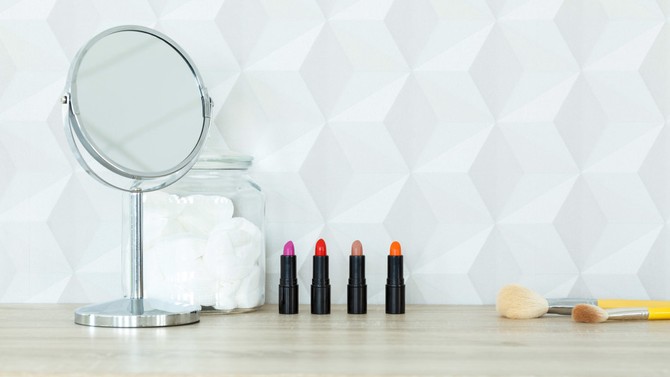
Photo: KatarzynaBialasiewicz/iStock
Remember to Remove Your Makeup
Sleeping with your makeup on is the enemy of youthful skin, Engelman says. Debris can clog pores and lead to inflammation, which accelerates the aging process. A lazy-day hack: Take off your makeup the minute you get home so you don't have to summon the energy at night. If you don't like splashing with water, Wexler recommends CeraVe Makeup Removing Cleanser Cloths, which "remove dirt, oil and makeup—even waterproof mascara," she says, and are saturated with nourishing hyaluronic acid.

Photo: torwai/iStock
Don't Overexfoliate
Scrubs, peels and toners that remove dead skin can help increase cell turnover to keep your face glowing. But exfoliate too often and you can end up temporarily thinning your complexion, Wexler says, which makes you prone to wrinkles. Stick to using gentle scrubs (with soft grains rather than anything gritty) or peels and toners with gentle acids (like lactic acid) no more than three times a week at first.

Photo: mapodile/iStock
Hold the Phone Properly
Engelman advises all her patients to "stop looking at your devices in poor lighting," which, she says, causes you to squint and speeds up the formation of lines around your eyes and forehead. Instead, swipe and scroll in better lighting and hold your phone at a 45-degree angle to prevent slumping—a move that can lead to "tech neck," or a wrinkled neck.

Photo: fotografixx/iStock
Monitor Your Skin, but Don't Obsess
Once you start an anti-aging regimen, you should see improvements in your tone and texture in about "three to four weeks," Wexler says. If you hit a plateau, talk to your dermatologist about switching up your products, or you might want to consider in-office laser procedures, which can help tighten the skin. Still, there's no magic bullet. "You can't completely stop it," Czech says of the skin-aging process. It's better not to be hyperfocused on every crinkle (and definitely avoid scrutinizing your face in bad lighting, which can make minor lines look like major etchings). If you have a healthy mind-set—and stick to a consistent skincare routine, eat well, get enough rest and protect with SPF—you're doing everything right to look radiant.
Published 07/10/2018

